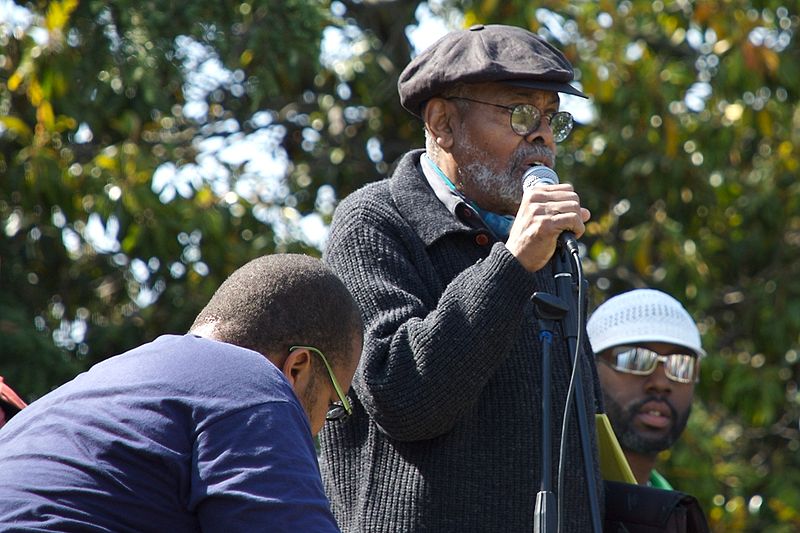 |
| Famed poet and activist Amiri Baraka passed away. |
Over the past few days, there's been talk about the New Jersey Republican governor Chris Christie and his ties to a deliberate traffic tie up at the George Washington Bridge to get revenge on the Fort Lee mayor.
While this is the talk of the nation, a famed and yes controversial poet named Amiri Baraka died on January 9, 2014. Baraka born Everett LeRoi Jones was an American writer of poetry, drama, fiction, essays and music criticism. He was the author of numerous books of poetry and taught at a number of universities, including the State University of New York at Buffalo and the State University of New York at Stony Brook. He received the PEN Open Book Award, formerly known as the Beyond Margins Award, in 2008 for Tales of the Out and the Gone.
Baraka's poetry and writing has attracted both extreme praise and condemnation. Within the African-American community, some compare him to James Baldwin and call Baraka one of the most respected and most widely published Black writers of his generation.
Others have said his work is an expression of violence, misogyny, homophobia and racism.
Baraka's brief tenure as Poet Laureate of New Jersey (2002–03), involved controversy over a public reading of his poem "Somebody Blew Up America?" and accusations of anti-semitism, and some negative attention from critics, and politicians.
Baraka read his 2001 poem on the September 11th attacks "Somebody Blew Up America?", which was criticized for anti-Semitism and attacks on public figures. Because there was no mechanism in the law to remove Baraka from the post, the position of state poet laureate was officially abolished by the State Legislature and Governor McGreevey.
Baraka collaborated with hip-hop group The Roots on the song "Something in the Way of Things (In Town)" on their 2002 album Phrenology.
He first married Hettie Cohen, with whom he had two daughters, Kellie Jones (b. 1959) and Lisa Jones (b.1961). Baraka would author an acclaimed, controversial play Dutchman, in which a white woman accosts a black man on the New York subway. The play premiered in 1964 and received the Obie Award for Best American Play in the same year.
After the assassination of Malcolm X in 1965, Baraka left his wife and their two children and moved to Harlem. Now a "black cultural nationalist," he broke away from the predominantly white Beats and became very critical of the pacifist and integrationist Civil Rights movement. His revolutionary poetry now became more controversial.
Baraka married his second wife, Sylvia Robinson, who later adopted the name Amina Baraka.
In 1967, he lectured at San Francisco State University. The year after, he was arrested in Newark for having allegedly carried an illegal weapon and resisting arrest during the 1967 Newark riots, and was subsequently sentenced to three years in prison.
Baraka's daughter Shani (Amina) with , aged 31, and her lesbian partner, Rayshon Homes, were murdered in the home of Shani's sister, Wanda Wilson Pasha, by Pasha's ex-husband, James Coleman. Prosecutors argued that Coleman shot Shani because she had helped her sister separate from her husband.
A New Jersey jury found Coleman (also known as Ibn El-Amin Pasha) guilty of murdering Shani Baraka and Rayshon Holmes, and he was sentenced to 168 years in prison for the 2003 shooting.
Amiri Baraka died on January 9, 2014, at Beth Israel Medical Center in Newark, New Jersey, after being hospitalized in the facility's intensive care unit for one month prior to his death. The cause of death was not reported initially, but it is mentioned that Baraka had a long struggle with diabetes.
Later reports indicated that he died from complications after a recent surgery.
Baraka's funeral will be held at Newark Symphony Hall on January 18, 2014.
We here at Journal de la Reyna send our condolences to the family of Amiri Baraka.
No comments:
Post a Comment